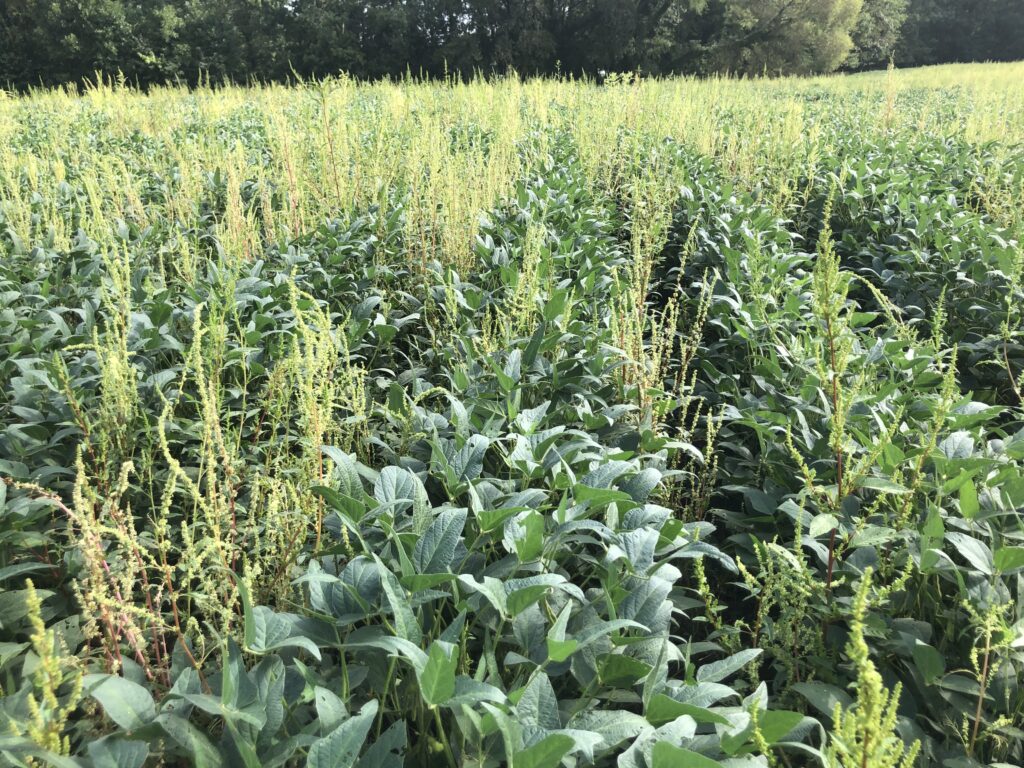
Last year we reported on waterhemp in Montgomery and Macon counties that was resistant to dicamba. We came to this conclusion from both research we conducted in the fields and the confirmation of those results by greenhouse research. The greenhouse research was conducted at Purdue University by my colleague Dr. Bill Johnson and his graduate student Claudia Bland.
More recently, Dr. Johnson’s team shared further results on the research with those populations. They found that these waterhemp populations are 9x resistant to dicamba. On the positive side these waterhemp populations were still susceptible to 2,4-D. These data are consistent with what the retailers in those counties have reported where over the past couple years most of their farmers have shifted from soybeans with the Xtend trait platform to soybeans with the Enlist trait platform. Several have said that the better waterhemp control is a big driver to this wholesale change.
The research at Purdue also found that those waterhemp populations were 11x resistant to fomesafen. This is not surprising. I think it would be safe to assume they are glyphosate-resistant as well. We now have 2 pigweed species in Tennessee that are resistant to dicamba, fomesafen and glyphosate. I think this really speaks to how much we have leaned on those herbicides the past two decades with the resulting selection pressure that drove 3-way herbicide resistance.
Some encouraging results from this research found that the waterhemp populations were still susceptible to Liberty, atrazine, Callisto and Armezon/Impact. This can point to some weed management suggestions to make sure to always tankmix Liberty in with Enlist One to help mitigate 2,4-D resistance from developing. It also shows that crop rotation to corn can help delay further resistance with waterhemp.

